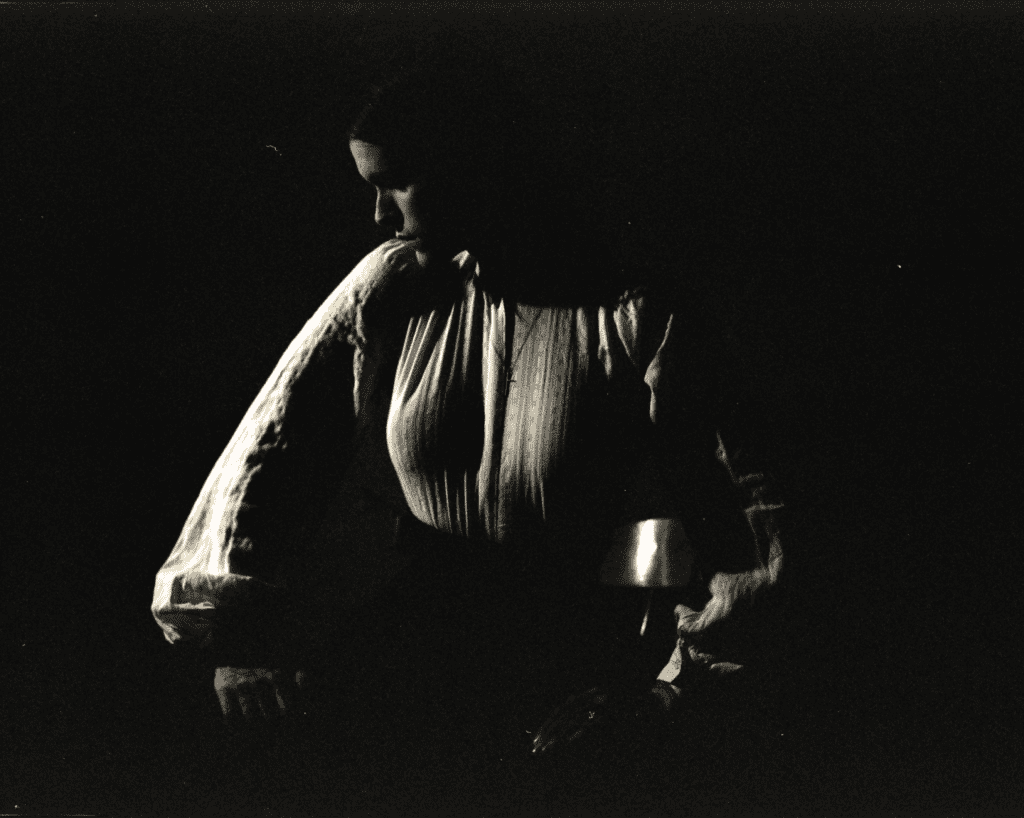
Perverts and the exaltation of the anti-pop star”>
Silken Weinberg
In 2023, I saw Ethel Cain at Coachella. Strolling around on stage in a cropped cheerleader uniform and varsity jacket, she’d packed out Sonora, the festival’s dramatically round indoor stage typically reserved for the quiet indie acts. As she belted her devastating 7-minute opus “A House in Nebraska,” grainy VHS footage of her running through the rural countryside flickering behind her, the crowd roared back her lyrics. This was the same year Bad Bunny and Blackpink headlined and Frank Ocean delivered his infamously disastrous set, but when it came down to picking the most memorable performances of the weekend, everyone I spoke to unanimously said Ethel Cain. “She was a star,” we said. She was going to be huge. She was already huge.
Despite bearing the traditional trappings of a mainstream pop girl on the rise, Cain and her music didn’t fall in that category. A transgender woman, her very presence even at the periphery of prevailing culture is a tragic rarity, while her debut album Preacher’s Daughter was heavily brooding Americana that wove tales about sexual abuse and getting cannibalized by a hitchhiker. Still, she moved like an it girl: Around the time of her Coachella debut, she covered magazines, starred in a Givenchy campaign, walked the Miu Miu and Eckhaus Latta runways, and sat front row at Proenza Schouler. Online, her fans called her “mother” and “meemaw;” in a darkly ironic turn of events her anti-war industrial complex song “American Teenager” made former President Obama’s famous year-end playlist.
Perverts, her new record, throws a mighty wrench into this trajectory. The project (notably not referred to as an album in press materials) is 90 minutes of hissing white noise, garbled whispers, poem recitations, and a distinctly horrific atmosphere. Every song runs over six minutes with three ambient done pieces spilling into the 10-minute-plus category. The few songs with lyrics and a more clearly discernable structure are actively antagonistic. “If you love me, keep it to yourself,” she sighs over a dozen times on “Vacillator.” Immediately after its release, commenters online dubbed the music “scary.” “I live alone and I couldn’t finish listening,” wrote one user in a pop music subreddit.
Though Cain barely did any press around the project, if you dig hard enough, a legible reasoning can be found. As Stereogum and Vulture have already pointed out, the project arrived with a corresponding text called “The Consequence of Audience” which she published in Homme girls in lieu of a traditional cover profile. Written like a biblical verse, it follows Cain taking a walk through the woods, feeling uneasy as she notices she’s being watched. She stumbles upon a temple, a towering structure that immediately reads to her like a sanctuary. She runs to it and writes, “One could follow me to it, but they could not follow me in.” It doesn’t take long to connect the forest watchers to her growing spotlight and the temple to perhaps, Perverts: an iron-clad, tightly guarded thing made for repelling rather than inviting in.
Ethel Cain is clearly over the fan worship, the “musician as celebrity” noise, and the dangers of becoming grist for the content mill: Everything about Perverts screams it. It doesn’t want to be easily liked. Its opening track is 12 minutes of disquieting white noise that’s genuinely perplexing and probably purposefully placed to thin out the listeners who don’t actually “get her.” But those who meet Cain on her turf will find Perverts very beautifully (and slowly) open up; its dark ambient stretches are richly challenging, plains of drone and piano that reveal its intricacies the longer you scrutinize. Closer “Amber Waves” is 11 minutes and exceptional; after all the heaviness, it’s the project’s lightest song and has Cain quietly reassuring that she’ll “be alright,” a reward for sticking it through. Fascinatingly, her core fans — and the wider critic community — are receiving the message, with the overwhelming majority praising the project even harder for its inscrutability.
“Perverts is an iron-clad, tightly guarded thing made for repelling rather than inviting in.”
Historically, cult artists who experienced wild success and followed that up with a reactionary pivot, like M.I.A. with Maya which critically flopped in comparison to Kala, have fielded much more polarized reactions. That’s changed in recent years, as a new generation of popular songwriters like Mitski and Clairo have found veneration as they’ve leaned further into their own esoterism.
Ethel Cain’s Perverts may be the most extreme example of this turning of the tide, of listeners finding value in an artist’s reluctance to participate in an industry’s charade. Sure, there will always be a horde of detractors against every Chappell Roan refusing to abide by entrenched fan-artist rules, but movements like Cain’s — a bucking of expectations and pursuit of a kind of anti-fame — are increasingly finding more receptive, and vocally supportive, audiences. For this new generation of stars, it’s not about closing the door of celebrity altogether — Cain herself is a prolific poster and I don’t see her high-fashion dabbles ending anytime soon — but retooling that portal to better suit one’s needs and personality, to do it on their own terms. And the fans who get it, get it.
It seems Perverts is just the beginning of Ethel Cain’s quest of doing just that. Per the musician, it might even take her away from the craft altogether. In that story for Homme girl, she said she doesn’t want “to be primarily a musician forever,” and that she’d like to write scripts, books, and get into making films. Even if her fans can’t follow her in, she can know they’ll follow her there.
